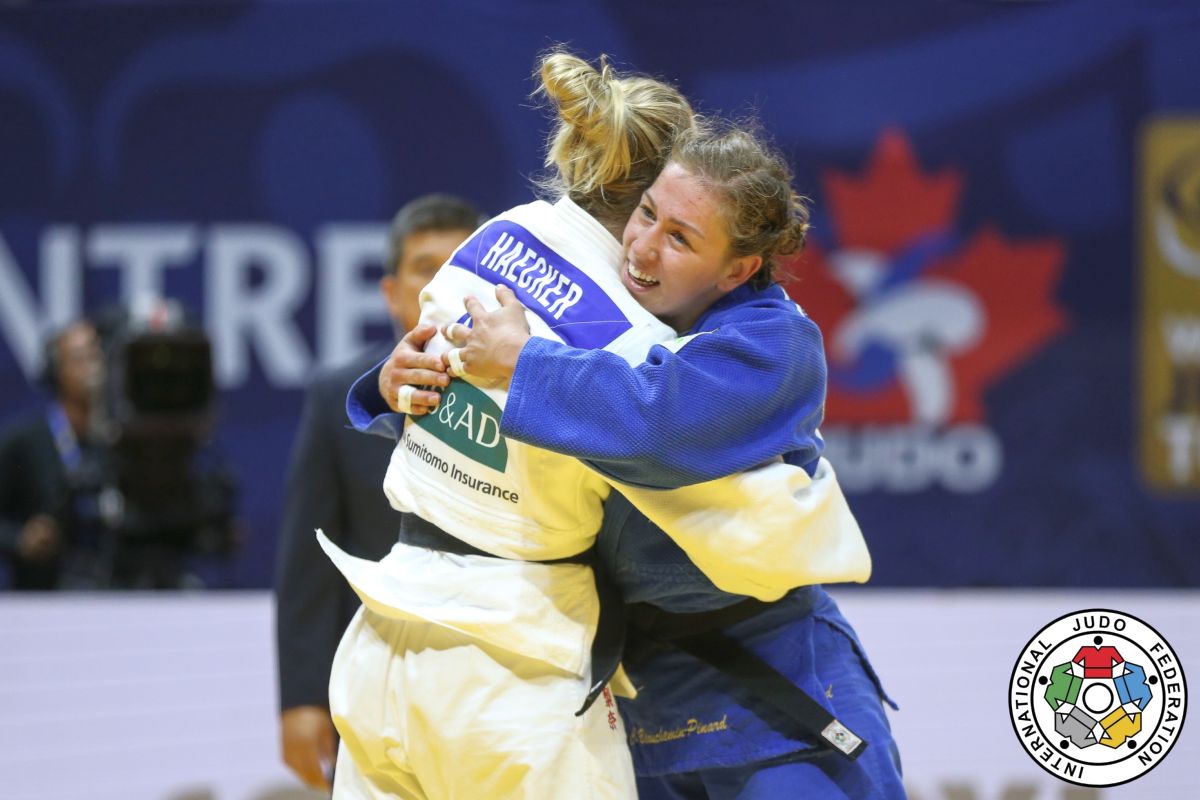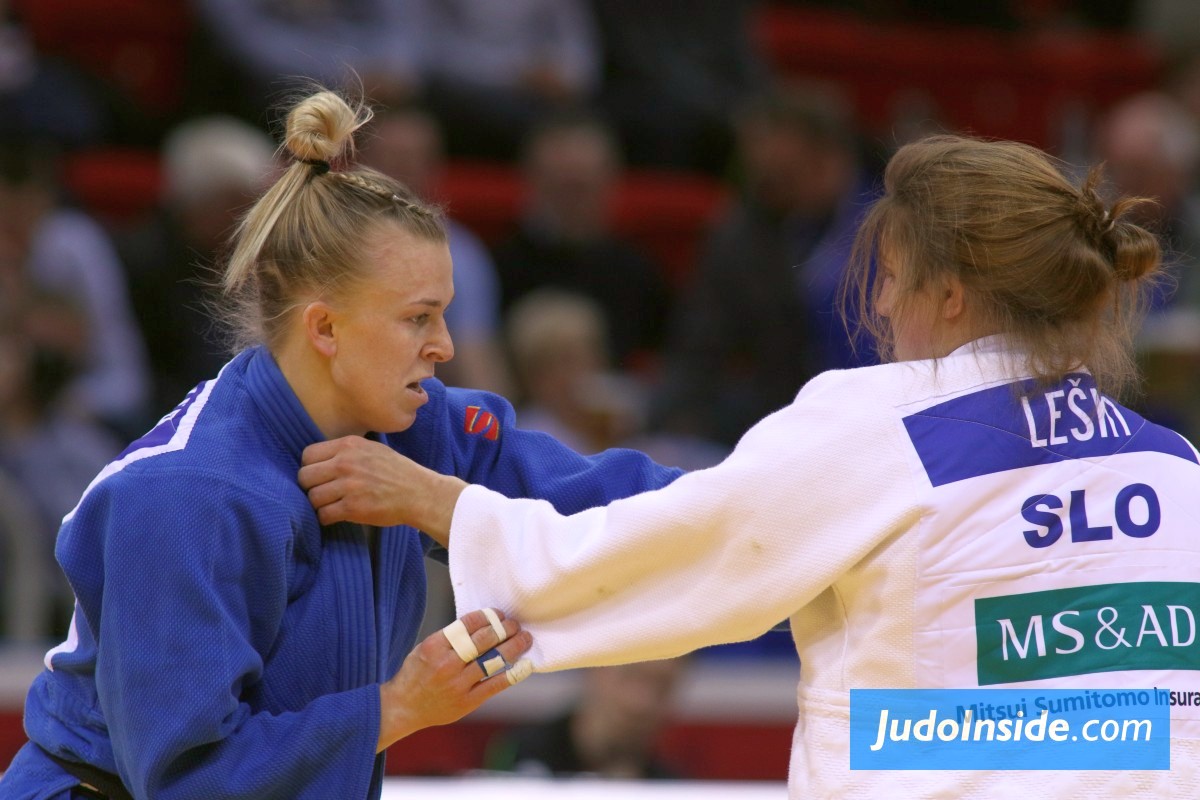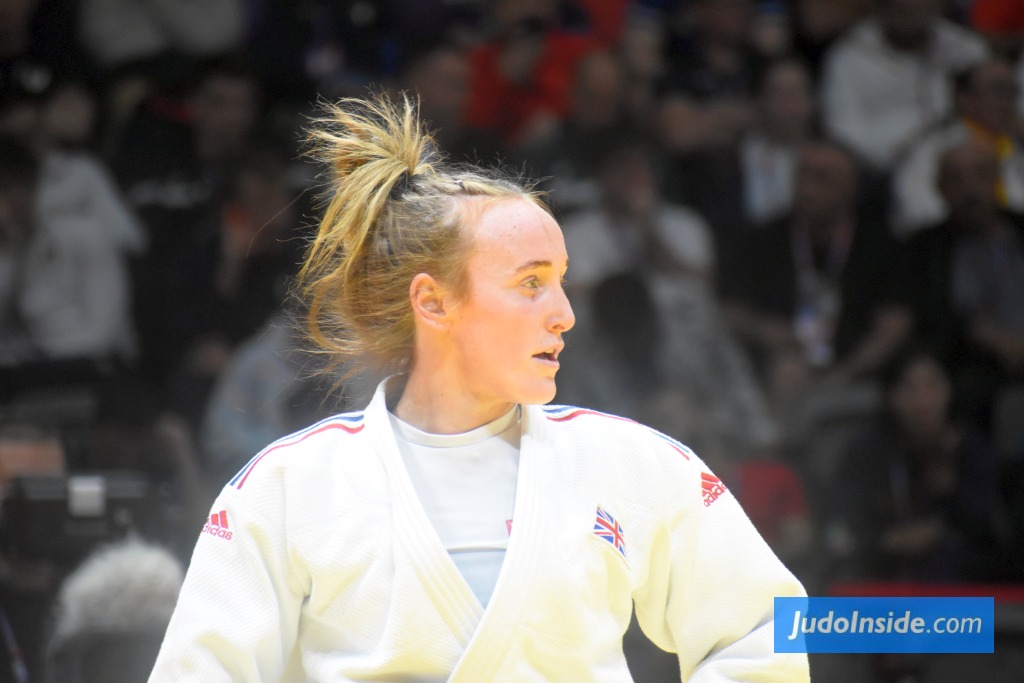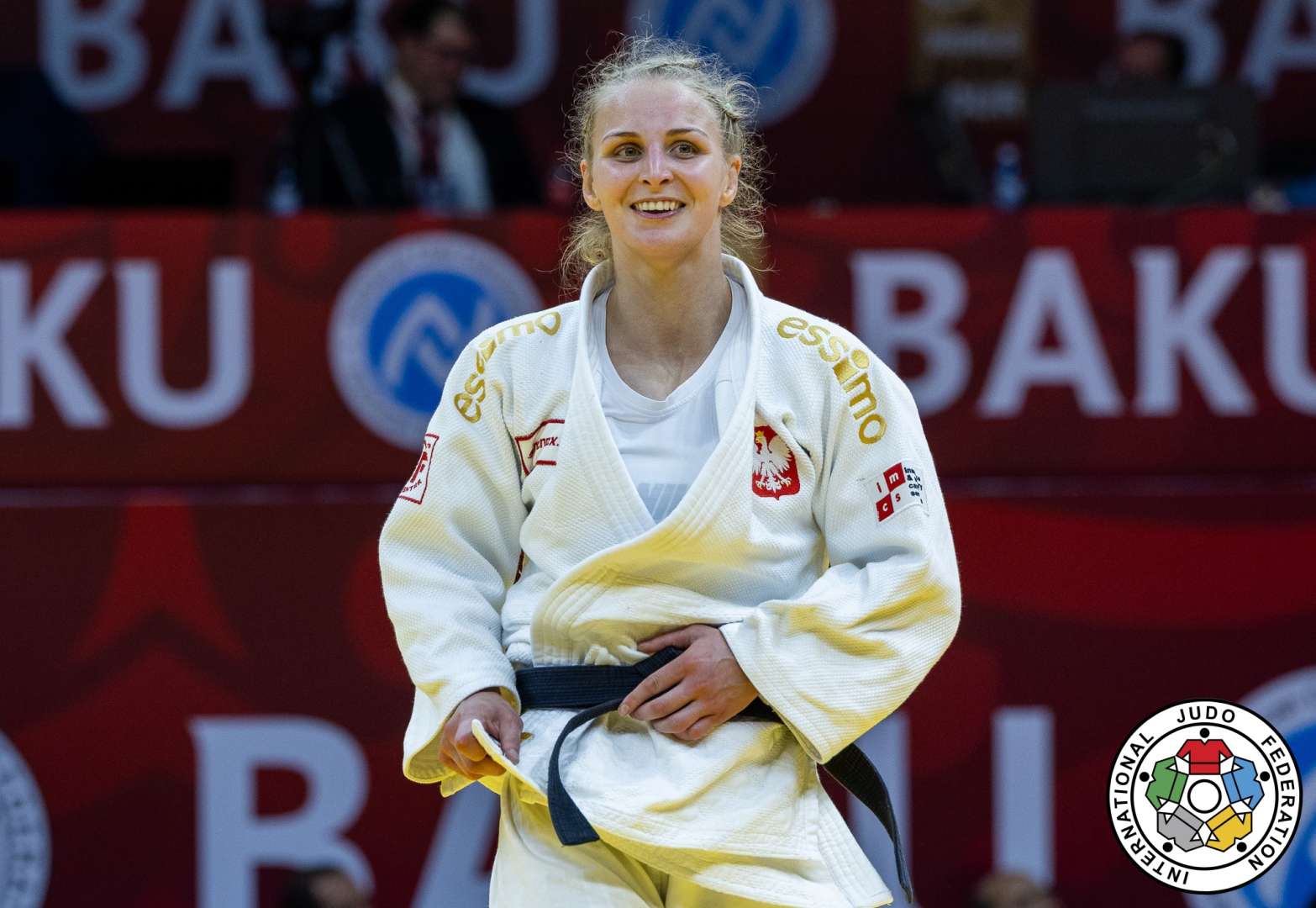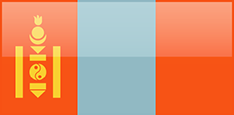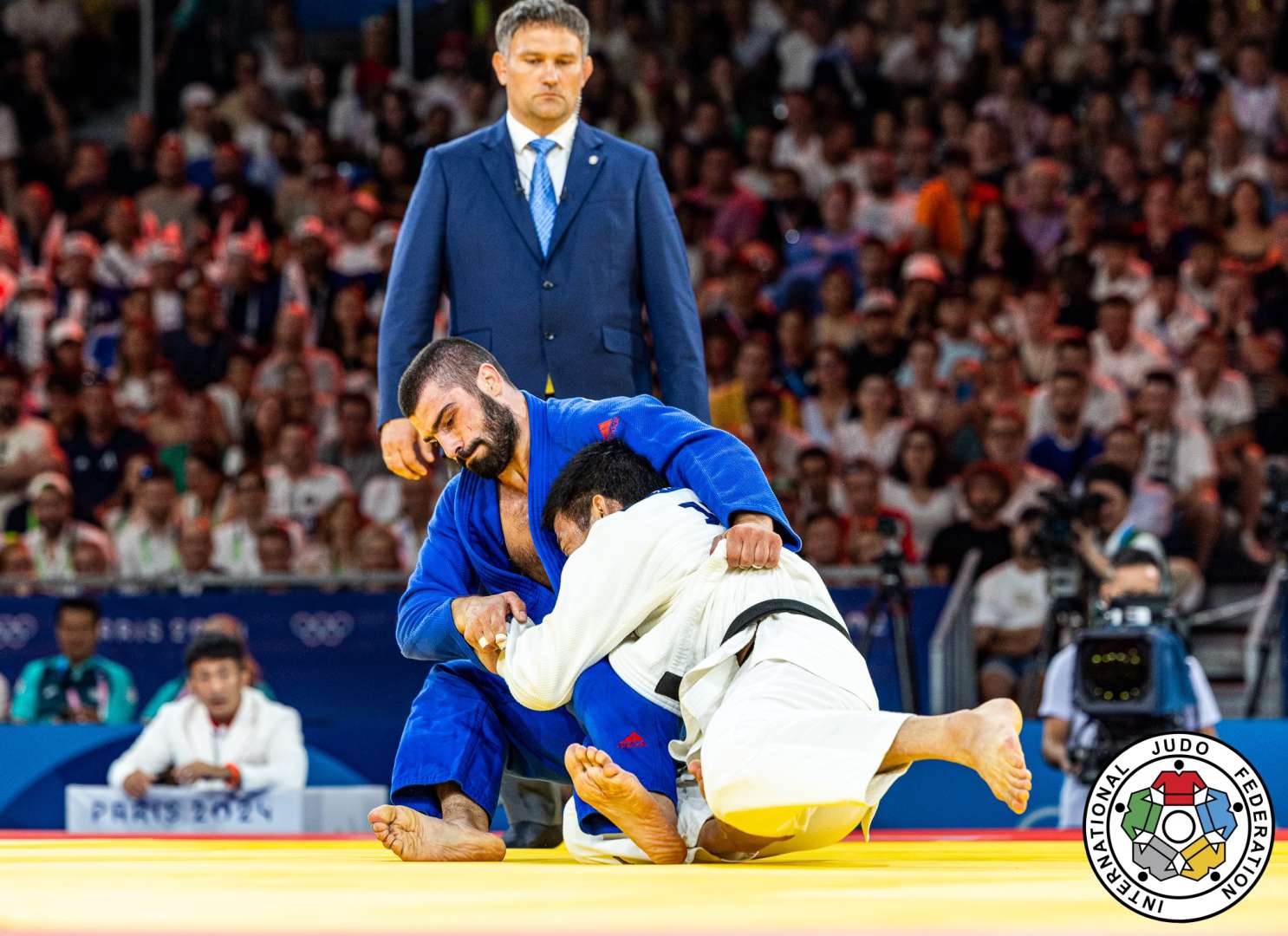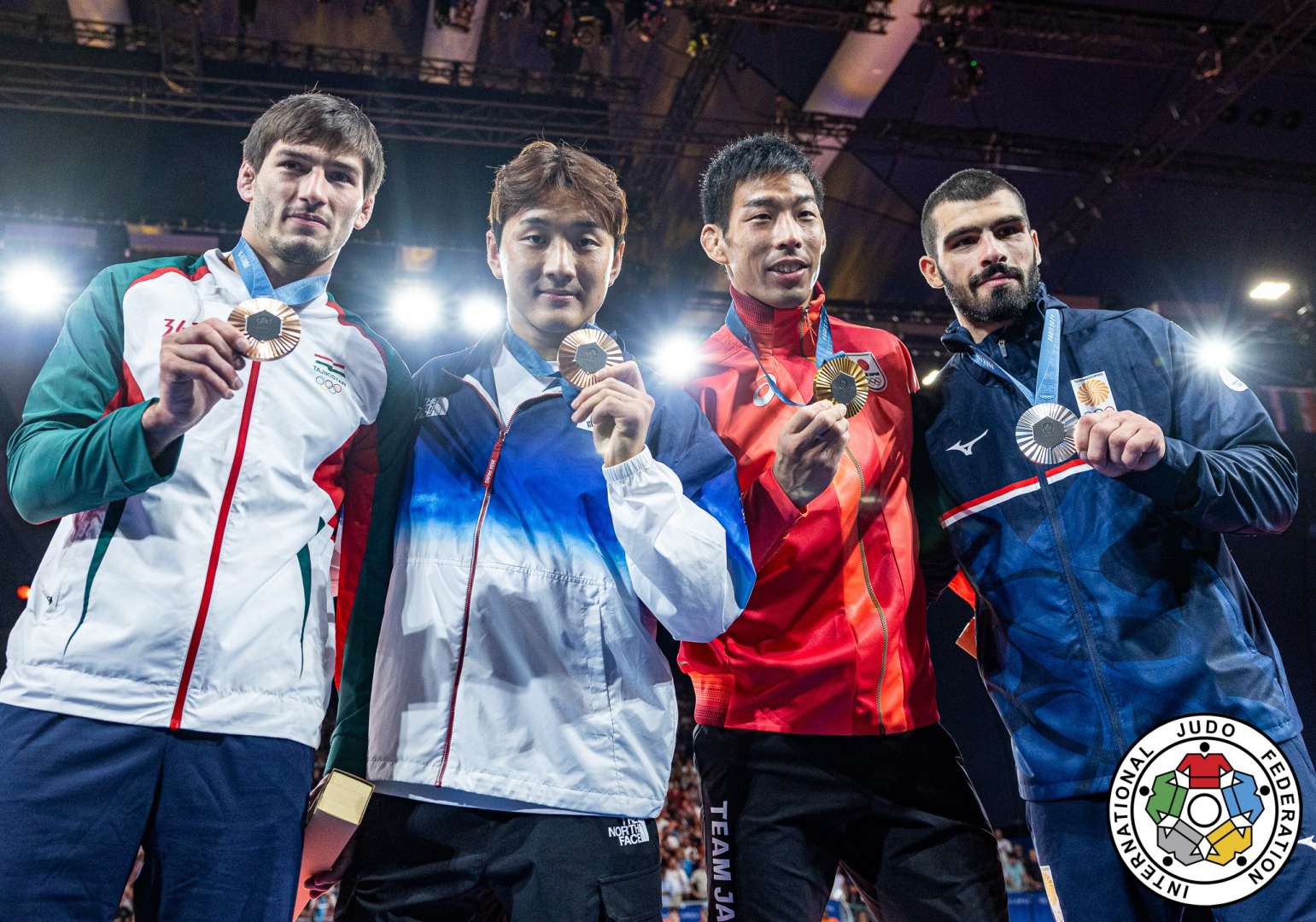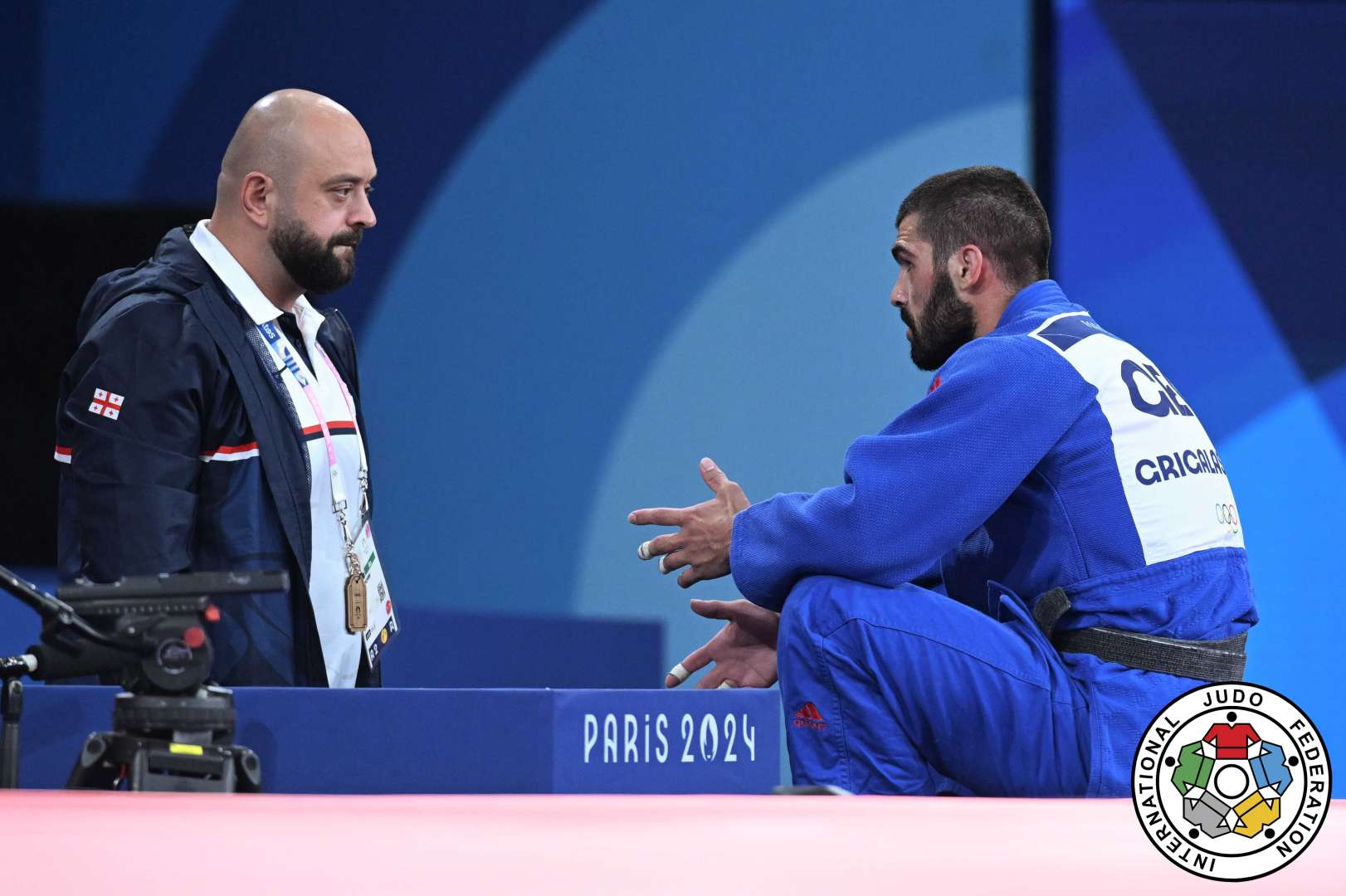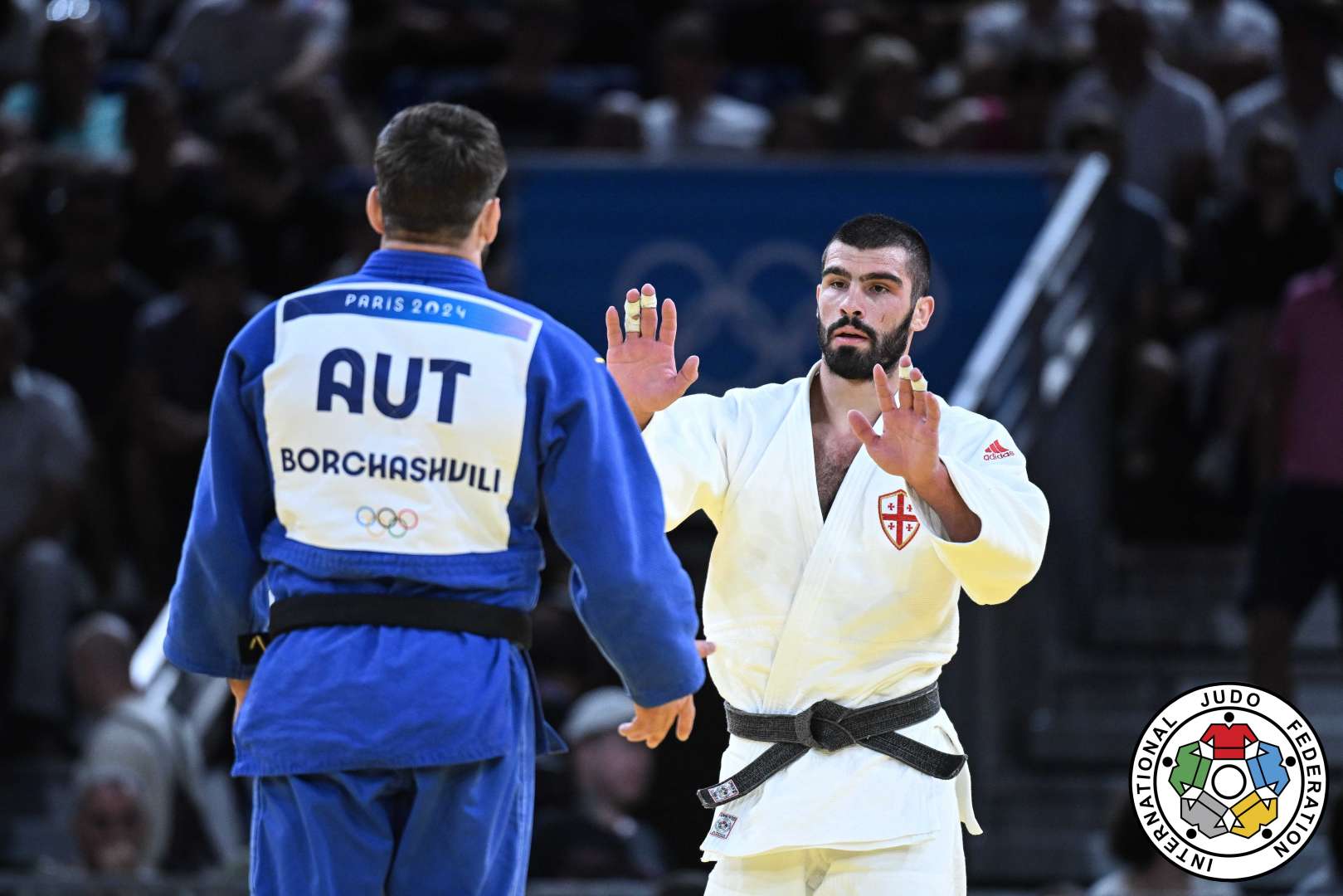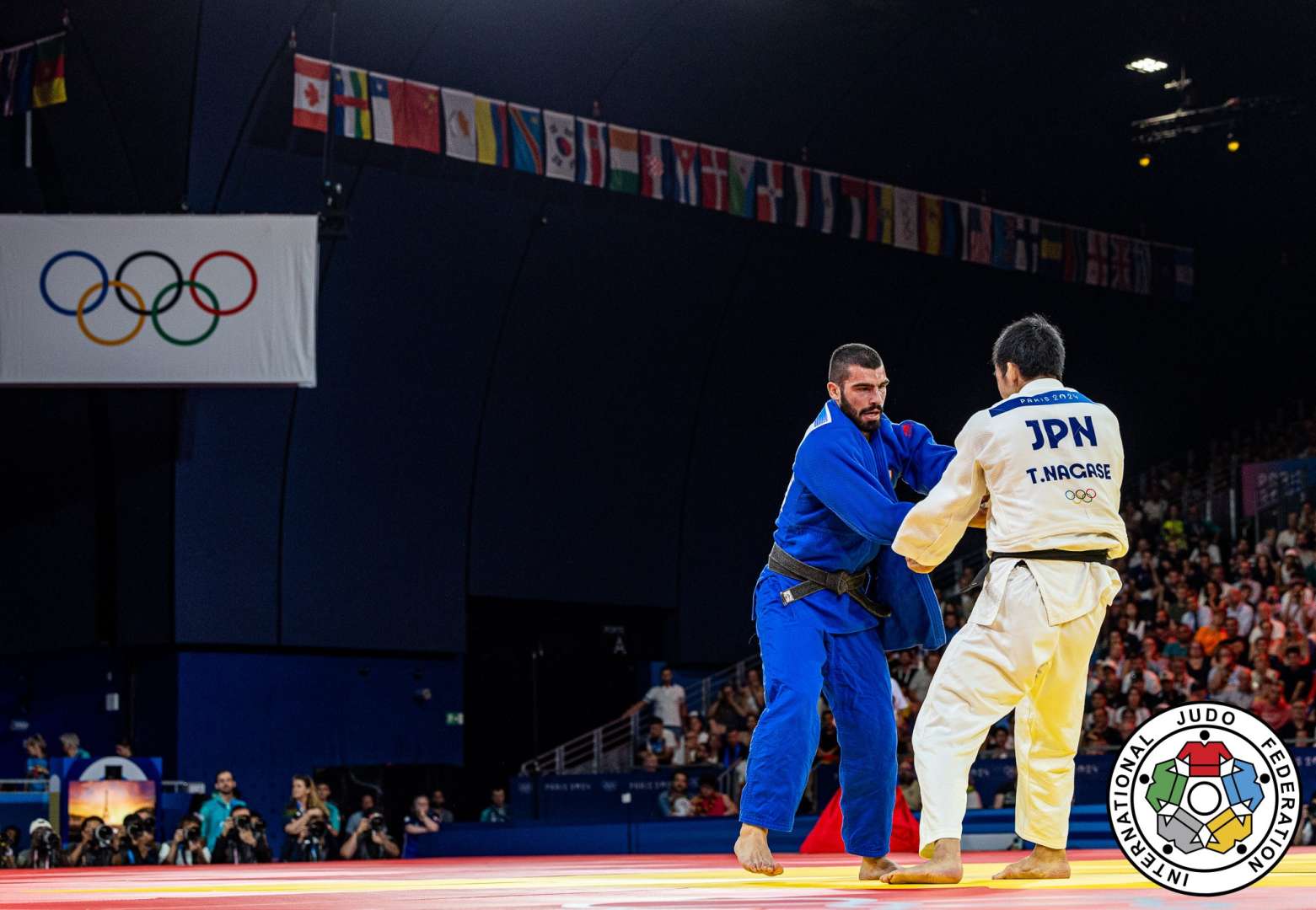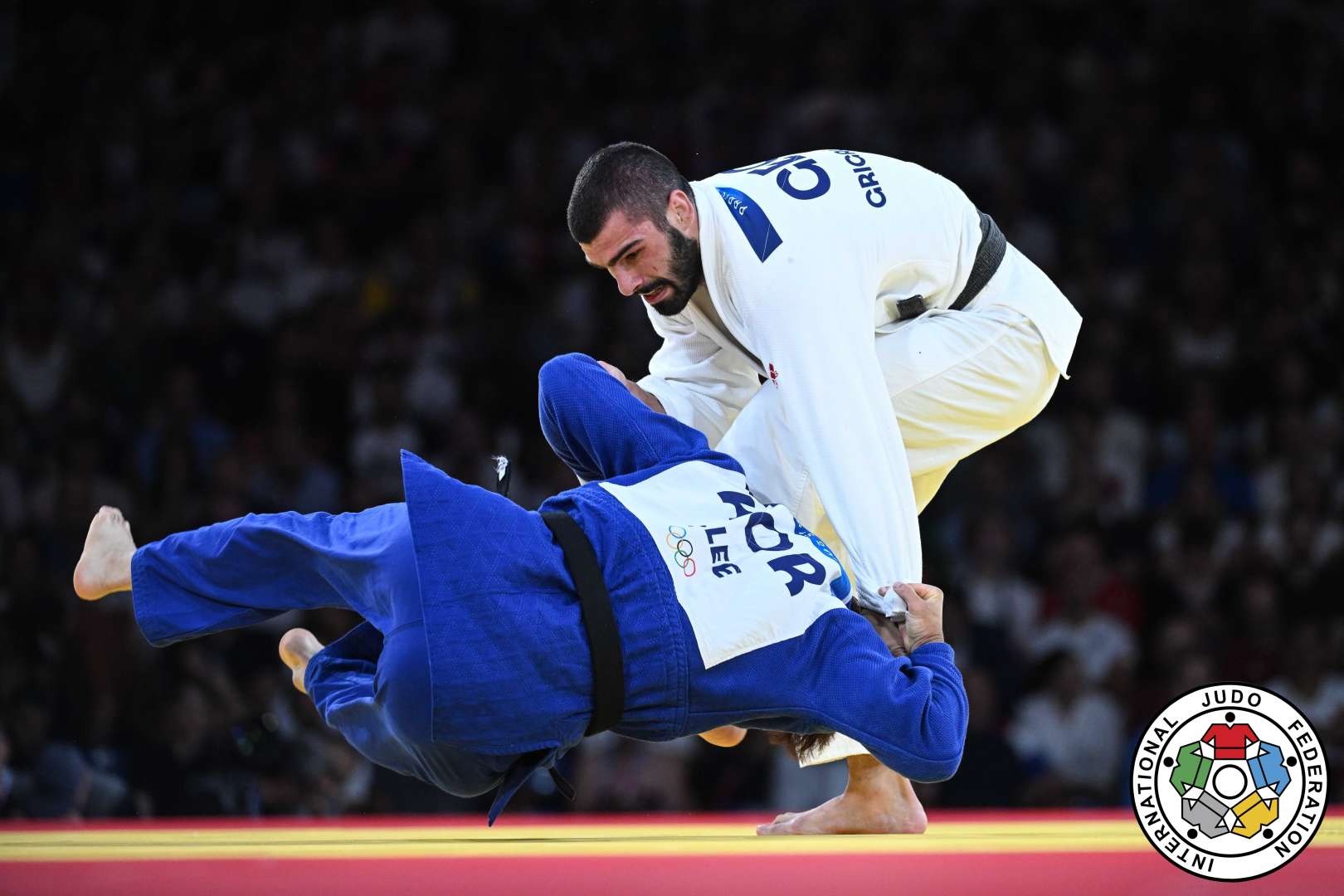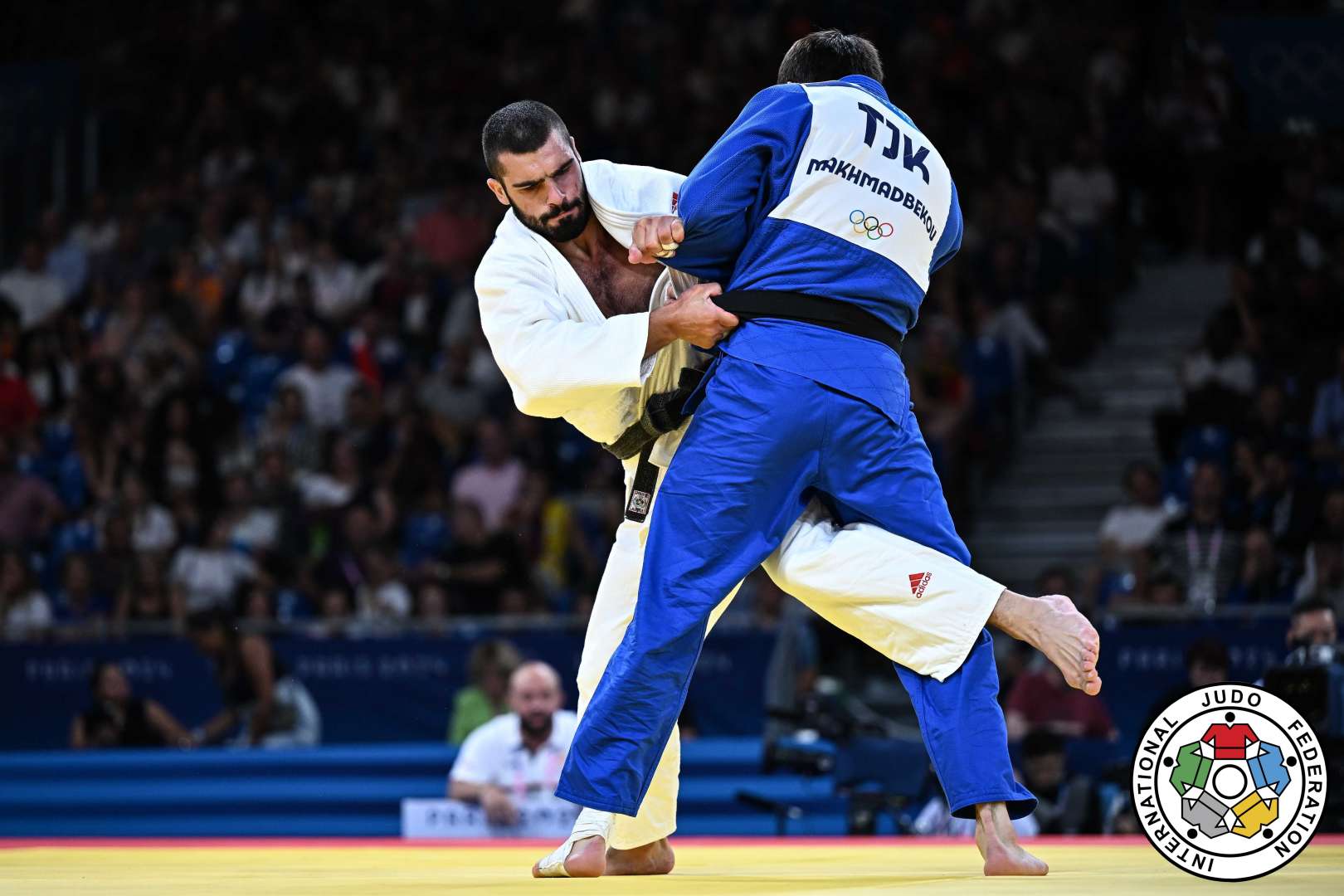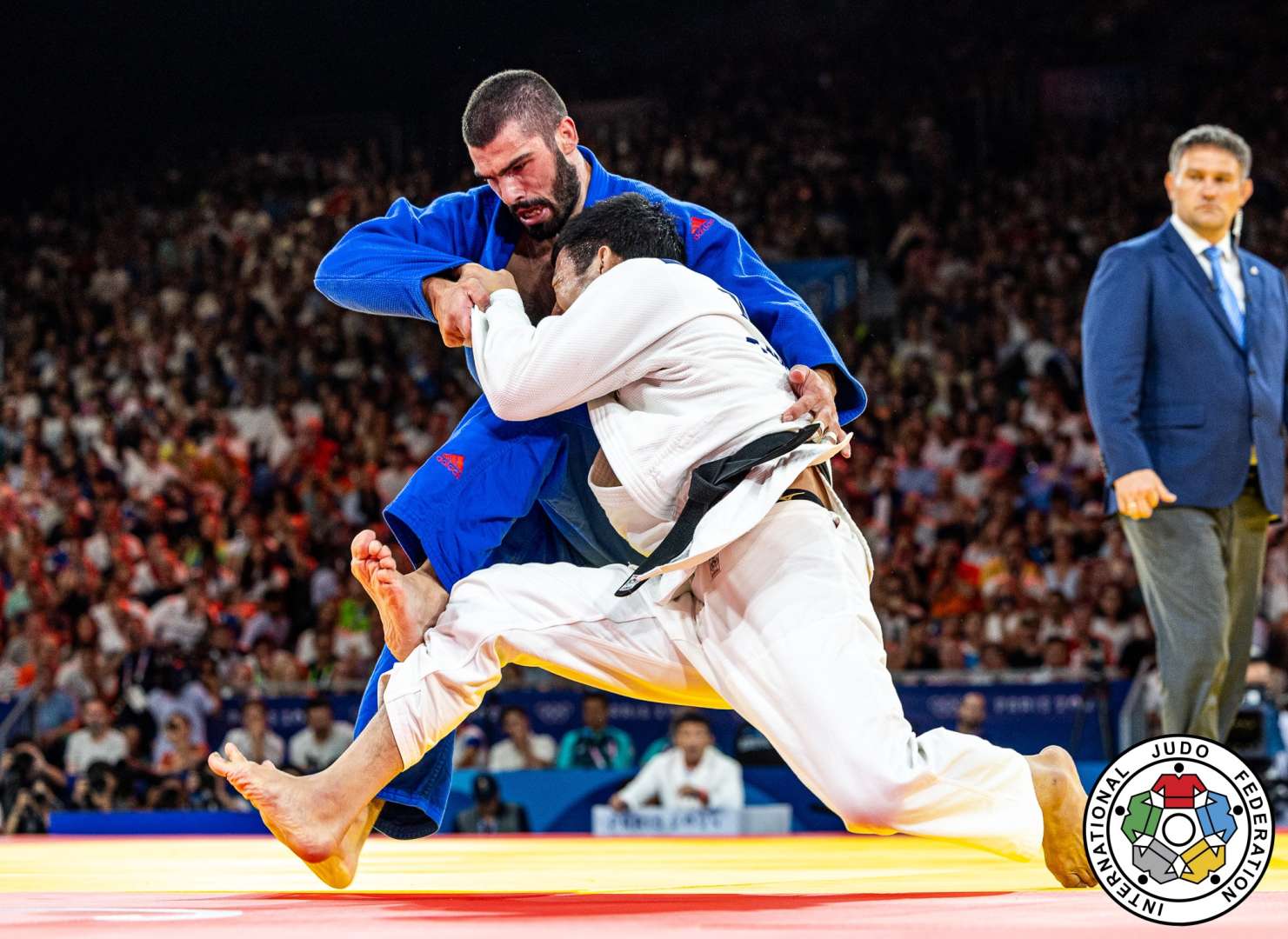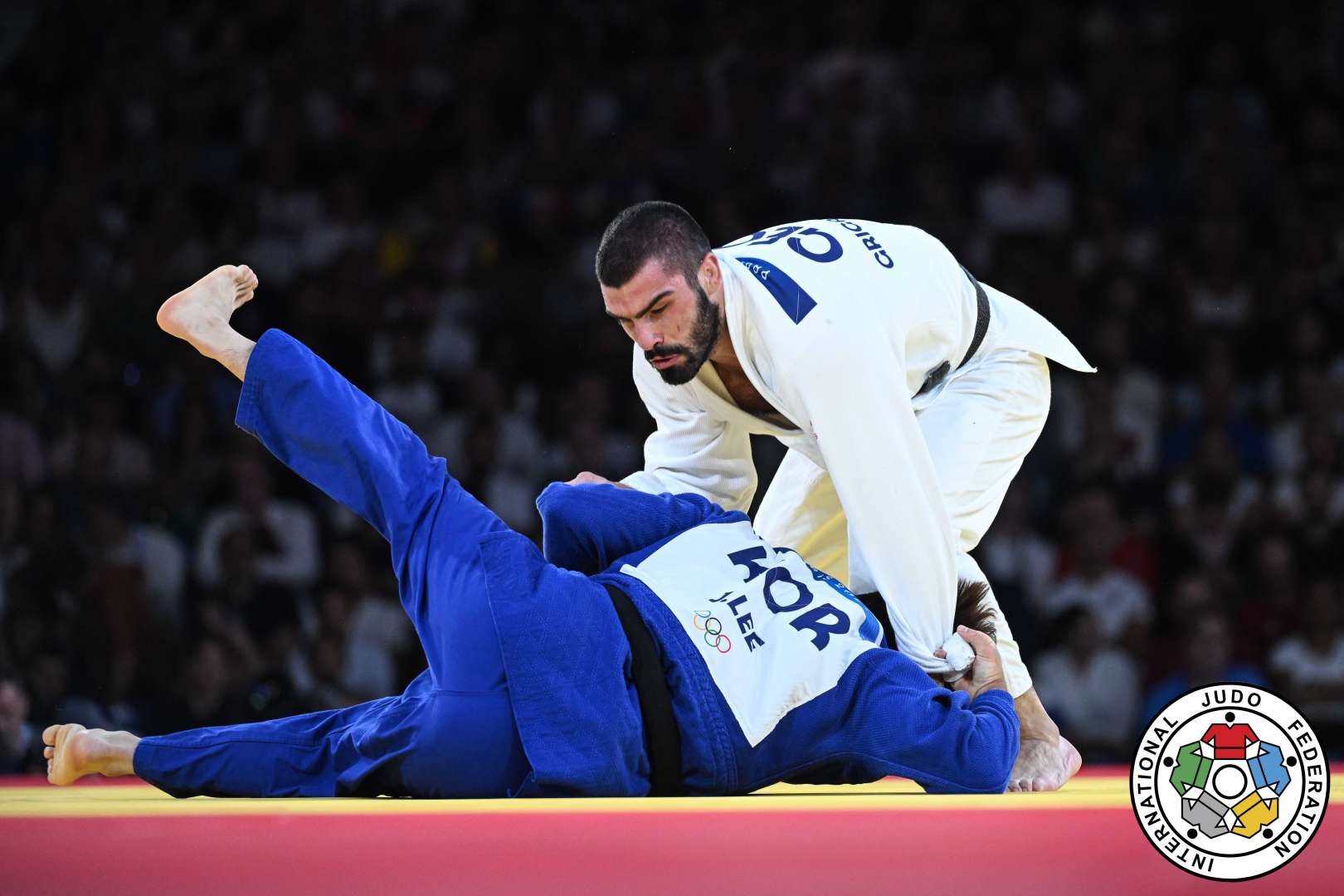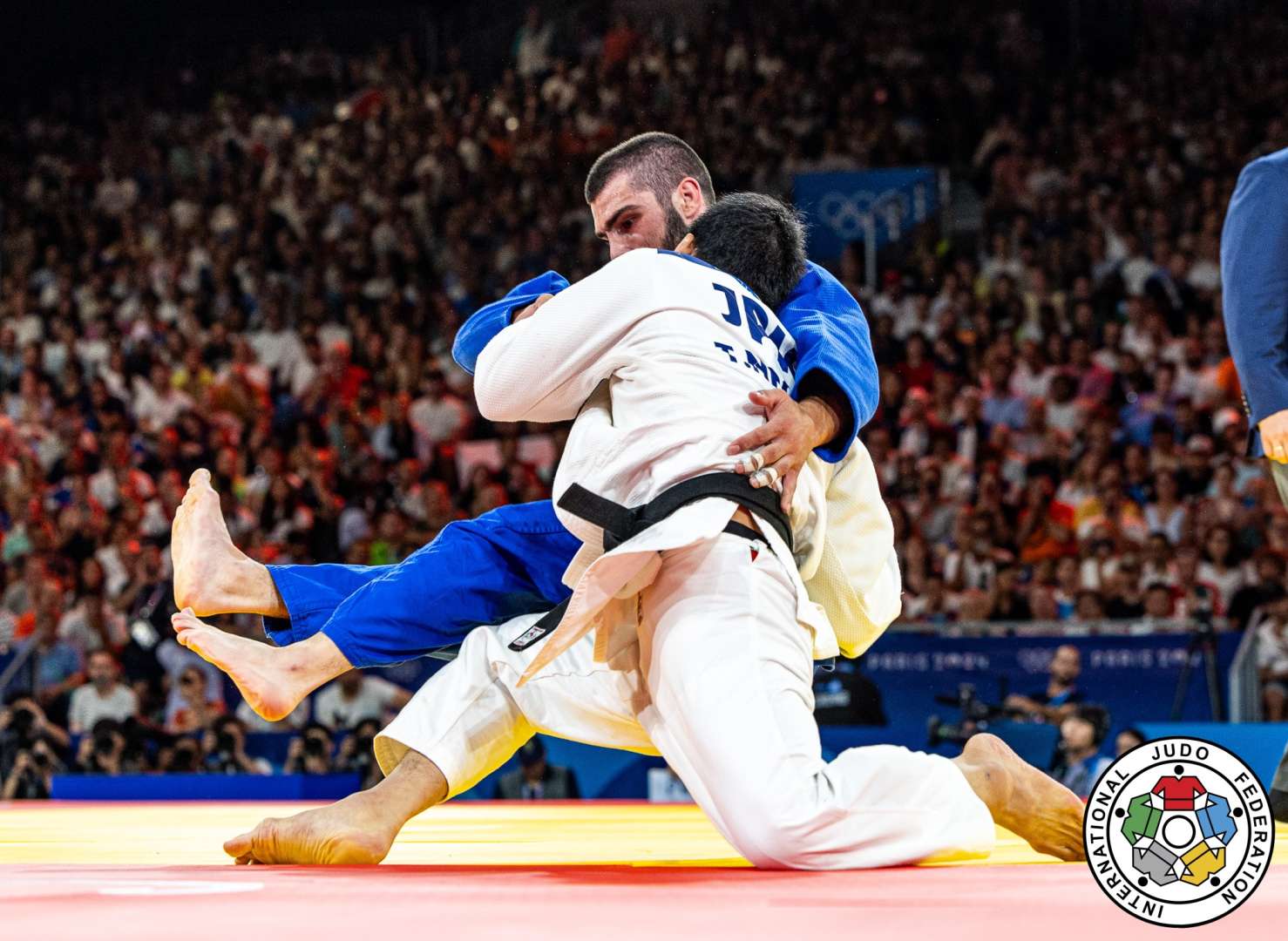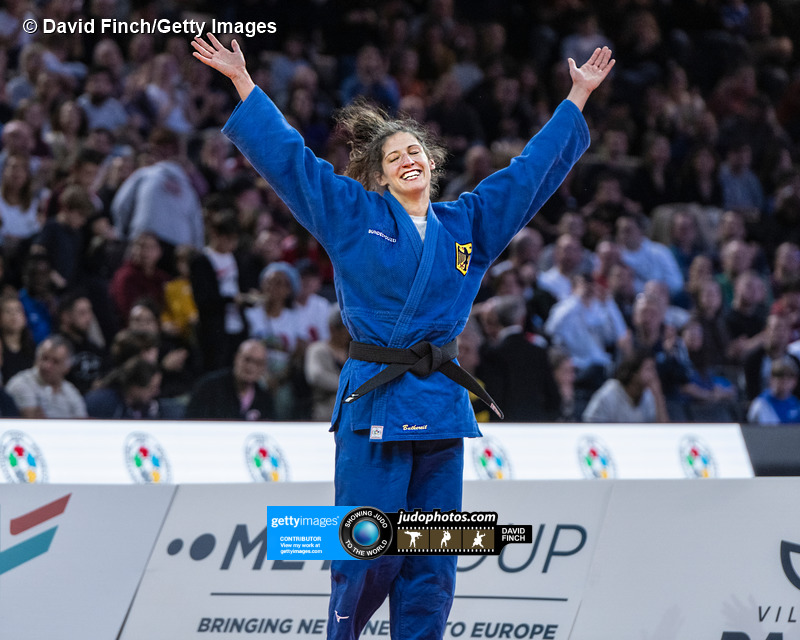Judo in the time of Covid-19: Katharina Haecker

 25 Mar 2020 10:15
25 Mar 2020 10:15
 JudoCrazy by Oon Yeoh
JudoCrazy by Oon Yeoh
 JudoInside.com - Hans van Essen / judo news, results and photos
JudoInside.com - Hans van Essen / judo news, results and photos
German-born Katharina Haecker, who represents Australia, was the U63kg gold medalist at the 2020 Tel Aviv Grand Prix. This was not only her first ever Grand Prix gold, it’s also the first time any Australian judo player has won any IJF World Tour event. Locked-down in Luxembourg, where she is currently based, Katharina is training as hard as ever at home, even as news broke that the Tokyo Olympics will be postponed. JudoInside's partner Oon Yeoh of JudoCrazy interviewer the European Aussie.
JIC: Congratulations on your recent win in Tel Aviv. You won the final match against Canada’s Catherine Beauchemin-Pinard in under a minute. Did that surprise you?
KH: Thank you, it was a very special and important moment for me and my team. I lost to Catherine twice before, that’s why I was really looking forward to fighting her again. We‘ve trained together in camps lots of times, so I knew what to do and I was confident that I could beat her. But to be honest, I had prepared in my mind for a tough and tight match that would probably go the distance and well into Golden Score. So, yes it was a pleasant surprise that it ended so fast.
JIC: Some players study their opponents meticulously while others don’t even bother to watch videos of their opponents. Which type are you?
KH: I used to be obsessive about watching videos of my opponents but that has changed over time. Nowadays, I might watch one or two of their fights but it’s not really necessary to even do that because I’m pretty familiar with all the top contenders. Besides, I completely trust my coach and we try to concentrate on my judo rather than over-analyzing what other players are doing.
JIC: In the semi-final, you defeated your German opponent, Martyna Trajdos, whom you’ve fought a few times before but lost to. How did that feel?
KH: Martyna is a great athlete and one of the top players in my category, so of course it was a great feeling to finally beat her. Actually we are both from the same city in Germany and we used to train in the same group for a while. But I never got to represent Germany as part of the national team. Although it always was my goal to do so, I simply wasn’t good enough back then.
JIC: Before you switched to representing Australia, you never fought for Germany?
KH: I competed at a few European Cups representing my club in Hamburg, Germany. But for the IJF World Tour I always represented Australia.
JIC: Let’s talk about your switch to Australia. How did that come about?
KH: My dad was born in Australia and he would always tell my brother and me lots of stories of his days growing up there. After I finished high school I made the decision to stop competitive judo and take a year off to discover Australia. I felt right at home straight away! After that, I returned to Germany and starting training with my current coach, and now partner, Alexander Luedeke. How I ended up representing Australia is a very long story but the whole idea started off as a joke, really. I don’t think either of us thought anything would come of it. But here we are!
JIC: Was that switch a strategic decision to make it to the 2016 Rio Olympics?
KH: Not at all! We weren’t thinking about Rio at that time, which was still so far away.
JIC: Speaking of the Olympics, Australia has just announced it would not be sending athletes to the Olympics if they are to be held in July. Subsequently, it's been reported that the Games are going to be postponed. Your thoughts?
KH: It’s a disappointment because we’ve all worked so hard for it but given the circumstances, the health of the athletes and all the people involved is more important than any medal could ever be. I trust the Australian Olympic Committee, so I supported their decision even before news of the postponement came out.
JIC: Why Luxembourg?
KH: Ha...ha... we moved here at the start of 2019 after Alex was appointed the national coach here. Before that, I used to train at the state training center in Hamburg, the city where we were both born.
JIC: What’s the Covid-19 situation like in Luxembourg?
KH: This is the second week of lock-down for us now. Luckily we are living a bit outside of the city and people are still allowed to leave their houses to go to the supermarket or go for a run, etc. It’s much stricter in the city.
JIC: I presume there is no judo training though. What are you doing to stay fit?
KH: Sadly, there is no judo training going on but I’m very lucky because I’ve got Alex, who supports me in every possible way. I’ve also received some training gear from a few friends, like a rower and a battle-rope. It’s not an ideal situation but we are trying to stay positive and make the most of our situation.
JIC: What was a typical training day like before the lock-down was imposed?
KH: I‘d normally get up around 6.30 am and have my first training session by 8.00 am. Mostly some weights or conditioning and rehab. I‘d have lunch after that and would then try to squish in some studying – but let‘s get real, this is mostly not happening. Normally, it’s a nap instead. Around 5:30 pm I’d head back to the dojo. Dinner is around 9.00 pm and after that it’s bedtime.
JIC: What course are you studying?
KH: I'm doing an online course for a Bachelor's degree in Sports Management.
JIC: What do you think would be an ideal new date for the Olympics, the end of this year or the middle of next year?
KH: For some sports it just wouldn’t be right to hold them during the winter. I think the best option would be to postpone it for a year and give Japan the opportunity to hold the Games the way they were meant to be, which is during the summer.
JIC: How important is an Olympic medal to you?
KH: I had asked myself a while ago, before this whole Covid-19 thing happened, if I would regret my choice of becoming a serious athlete if, at the end of the day, I didn’t win an Olympic medal. The answer was a clear no! Of course, it would be tremendously disappointing but judo has given me so many great things, in so many ways, that not getting a medal wouldn’t really make much of a difference. Judo means the world to me, so no regrets.
JIC: You got silver at the 2019 Marrakesh Grand Prix and now gold at the 2020 Tel Aviv Grand Prix. Would you say you are peaking right now?
KH: I think I’m now at a level where I can go toe-to-toe against any of the top players. I haven’t had the chance to fight all of them yet but I’m ready and I will stay ready.
JIC: So, no letting up in your training just because the Olympics have been postponed?
KH: I’m going to keep training. We’ll make some adjustments to the program but training continues.
JIC: You’re 27 years old right now. How would you compare your judo today to what is was when you were 21 years old?
KH: Well, I did my first IJF World Tour event when I was 21. Back then, I had no experience fighting at that level so I was very nervous. My coach used to refer to me as “a broken car he is trying to fix while driving”. I was not a natural talent in judo. But I loved judo. Everything I’ve achieved thus far has been due to sheer hard work and over the years, I've managed to develop some sound technical skill-sets. Mentally, it took me a long time to really believe in myself but today, my mindset is one of my strongest assets. I can’t wait to show a lot more of my great judo in the future!
JIC: Any words for the global judo community stuck in a lock-down like you?
KH: It’s very hard to find the right words because this situation is so unique and well… it simply sucks! We can console ourselves knowing that we are not alone. We are all in this together and we need to maintain a positive attitude. I don’t know how long this will last but I know one thing about the judo community, and that is we will stick together and we will get through this, together.
Read JudoCrazy's COVID stories here
The IOC postponed the Olympic Games until 23 July 2021, the U63kg event will take place at 27 July 2021.
Birthdays during the Olympic Games
24 July is the birthday of Olympic Champion Tagir Khaibulaev who won gold in 2012.
At 25 July Riki Nakaya double World Champion and Olympic medallist celebrates 31 years (this year).
At day three 26 July of the Olympic Games in 2021 referee and World medallist Matthieu Bataille celebrates his birthday.
Hidayet Heydarov will fight at his birthday at 27 July in Tokyo once he qualifies U81kg.
Felipe Kitadai will have his birthday at day 5 at 28 July of the Judo Tournament when U70 and U90kg will fight.
When U100 and women U78kg fight, 2012 Olympian Marie Mueller celebrates her birthday at 29 July.
At the last day at 30 July the heavyweights Alon Sasson will follow his brother to continue Israelian success.
The team event at 31 July Katharina Haecker celebrates her birthday
The IOC postponed the Olympic Games until 23 July 2021, the U70kg event will take place at 28 July 2021.
 like
like
 share
share
 - TSEND AYUSH, Naranjargal (MGL)4.jpg)
| Result | City | Date |
|---|---|---|
| 2 | Paris | 2024 |
| 1 | Abu Dhabi | 2024 |
| 1 | Zagreb | 2024 |
| 3 | Belgrade | 2023 |
| 2 | Montpellier | 2023 |

